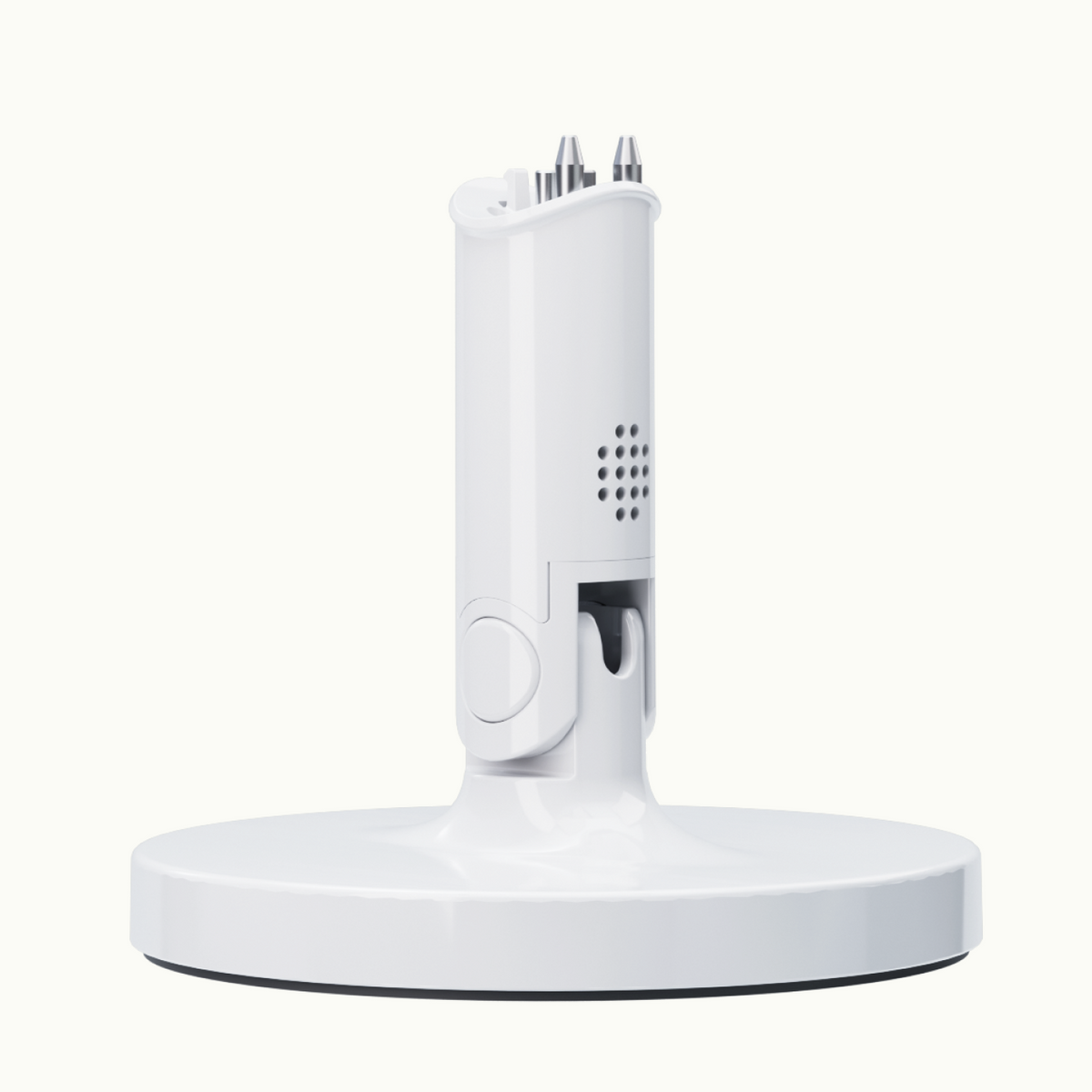Remember when being up at 3am meant you were having a good night? No? Everything’s a bit foggy since you had a baby? After those crazy, hazy newborn days, most parents are longing for an uninterrupted night’s sleep (and likely, a regular shower). Take heart, the promised land of a good night's rest may be closer than you think; you may be able to start night weaning.
What is Night Weaning?
Night weaning is an essential step in your baby's journey towards more independent sleep. It involves gradually reducing or eliminating nighttime feedings, allowing both you and your little one to enjoy more uninterrupted, restful nights. Every baby is unique, and night weaning should be approached with care and sensitivity. We are here to provide tips to help you navigate this important phase of parenting confidently because sleep is a precious (and necessary) thing.
When to Night Wean
Is your baby ready for night weaning? A cutting-edge baby monitor like Nanit can let you know if you’re visiting your baby at night more than you need to. But generally, when does that happen?
Our resident infant sleep expert, Dr. Natalie Barnett, says yes if your little one is 4-6 months old. “Many, though not all, babies are able to make it through the night without food at 4 months. By 6 months, almost all healthy babies are physically and neurologically able to go 12 hours without food.”
Before you start night weaning, it’s important to have two things in place.
First, you need to structure daytime feedings so that your little one is getting all the calories and nutrition they need during the day. If you eliminate nighttime feedings, you need to make up for it during the day, or your baby is going to wake up hungry. Dr. Barnett recommends milk feeding every 2.5-3 hours and 3 solid feedings a day, if your baby has started solids.
Second, you want your baby to fall asleep independently at the beginning of the night. A baby who falls asleep on their own is more likely to settle themselves in the night without your intervention. They’ll find their own way back to sleep rather than looking to food or comfort. If you need some help getting your baby to fall asleep on their own, check out our post on raising an independent sleeper.
How to Night Wean
Once you’ve laid the foundation, what’s the best way to wean your baby off night feeds?
“There are a range of options depending on your baby and your parenting style” says Dr. Barnett. You can cut down on night feeds gradually, take a middle-of-the-road approach, or go cold turkey.
If you choose to wean your baby gradually, Dr. Barnett suggests cutting down the amount of milk they’re getting at each night feeding over a period of a few weeks. Reduce the number of ounces your baby is taking for each night feed every few days until they’re no longer feeding at night.
If you’re breastfeeding, nurse for shorter and shorter periods of time over a few weeks. Dr. Barnett suggests using 10 or 15 minutes as a starting point “by 4 or 5 months your baby should be able to get all the food they need in 10 or 15 minutes, so work down from there.” You’ll also want to be conscious of how your baby is sucking. As soon as they stop eating and start comfort sucking, unlatch and put them pack in the crib.
If your night weaning process falls somewhere in the middle, give your baby a chance to get back to sleep on their own, but set a time limit on crying. If they haven’t settled themselves in that time period, go in, pat them on the back, rock them, or just feed them. It's up to you. Increase the amount of time you let them cry each night, for example, give them 20 minutes on night one, 30 minutes on night two, and 40 minutes on night three. Dr. Barnett recommends this approach for younger babies (closer to 4 months) rather than letting them cry indefinitely.
If you’re a tear-off-the-bandaid type, make sure they are getting all the milk supply they need during the day then eliminate the desired nighttime feeding, or all feeds, and let your baby cry until they settle themselves.
What to Expect
So, how long will it take?
If you take a gradual approach, it may take a few weeks. A middle-of the-road method can take a little less time, but will likely require a week or more. If you’re eliminating the feeds cold-turkey, it should take around 3 days.
Before you start down your chosen path, make sure your baby is getting enough food during the day. “The process will be more drawn out if your baby is hungry,” says Dr. Barnett. “If everything is in place, your baby really shouldn’t need those night feeds.”
Breaking the association between food and sleep association will also help your chances of success. Dr. Barnett recommends feeding upon awakening starting at 4 months. “Prior to 4 months, it’s totally appropriate for your baby to fall asleep however they can, but at around 4 months you’ll want to transition to daytime feeding when they wake rather than feeding to sleep. It’s such a strong sleep association.”
Like any kind of sleep training, night weaning can be challenging. Dr. Barnett offers some reassurance “Transitioning from eating at night is a big change and big changes come with frustration. Your baby’s not angry or feeling abandoned, they want to get back to sleep and they’re learning how to do it without an overnight feeding.” When you know what you’re hearing is frustration it can be a bit easier when your baby cries. “It’s okay for your baby to be frustrated,” she says. “I would never want a baby to do something they’re not ready to do, but your 4-6 month old is likely ready to night wean. This is a totally appropriate level of frustration for your baby to experience.”
A smart video monitor can also provide peace of mind and context as you navigate this transition. Having personalized data about your baby's sleep can be helpful to understand your baby's patterns and see improvements over time.
Key Takeaways:
The most important thing you can do is be consistent. “I cannot stress consistency enough,” says Dr. Barnett. “Weaning will take longer than it needs to if you don’t stick to your plan.” It also helps to be confident in your approach. Babies will feed off your mood, so when you’re sure of yourself, they are, too.
Have confidence in your baby and yourself. Set them up for success, trust that they’ll find a way, and chances are, you’ll both get a better night’s sleep.
Looking for more help? Find advice and tips from parents like you in our community.






